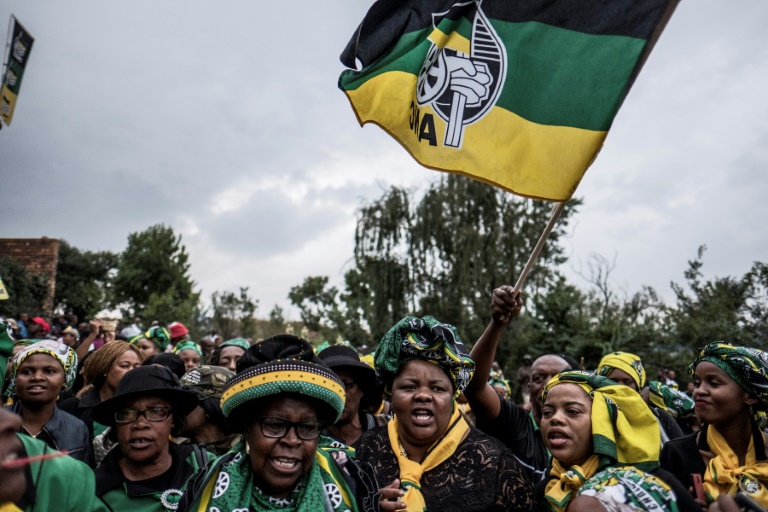Louis Liebenberg and Tariomix: A diamond in a rough liquidation process?
But in death, her chequered record has largely been forgiven in South Africa, with the president declaring 12 days of mourning and the government accusing her critics of pushing an “apartheid-era narrative”.
Defending Winnie Madikizela-Mandela’s legacy has become a rallying call for South African politicians keen to tap into her radical, uncompromising image that now resonates with many young black voters.
Soon after Winnie’s death on Monday, media accounts of her life told how she was found guilty of kidnapping in a case where her bodyguards beat a 14-year-old boy to death in her home in 1988.
She was accused of running a mafia-style gang responsible for multiple murders and beatings in Soweto, and of endorsing “necklacing” — killing suspected informers with burning tires put over their heads.
But Communications Minister Nomvula Mokonyane said there was an “attempt to present the legacy of this great liberation struggle stalwart as a compromised and divisive history”.

Members of the ANC Women’s League pay tribute to late South African anti-apartheid campaigner Winnie Madikizela-Mandela
Mokonyane accused critics of undermining Winnie’s role in the fight against a “regime whose killing machinery found enemies in children and adults alike on the sole basis of them being black”.
– Unbridled praise –
President Cyril Ramaphosa had earlier set the tone by hailing Winnie as “an abiding symbol of the desire of our people to be free” and “a champion of justice and equality”.
He ordered the national flag to be flown at half-mast until April 14, when she will be honoured with an official funeral at a huge sports stadium, complete with a ceremonial military guard.
Not to be outdone in the outpouring of praise, the leader of the radical opposition Economic Freedom Fighters (EFF) party Julius Malema, attacked those who questioned Winnie’s record.
“The least we can do is defend her in death and not allow the racists to insult her,” Malema said, standing outside her modest Soweto home.
“They fear her even in death — that is why they continue to characterise her in a manner that we do not know.”
Winnie, who was divorced from South Africa’s anti-apartheid icon Nelson Mandela in 1996, was also convicted of fraud in 2003 over fake bank loan paperwork.

Portrait of Winnie Madikizela-Mandela, who died leaving a controversial legacy behind
One of the few prominent names to address the darker side of her past was former president Thabo Mbeki.
He told local media that she was “an outstanding activist”, but that she had made major mistakes when she ran the notoriously brutal gang called the “Mandela United Football Club”.
Mbeki said that remembering a national figure like Winnie “includes discussing the negatives” — sparking fury from some mourning South Africans.
– ‘She was no angel’ –
National press coverage has been largely adulatory since Winnie — often known as “Mama” and “Mother of the Nation” — died aged 81 at a Johannesburg hospital.
The popular middle-market Sowetan newspaper described her “a true struggle icon” but added that people should at least “reflect on the mistakes ‘Mama’ made in her life”.
She “was no angel and was punished for her mistakes,” it concluded.
Winnie’s life story was certainly compelling and complex. She was South Africa’s first black university-educated social worker — but suffered beatings, detention and torture while her husband was in prison for decades.
The couple were famously pictured hand-in-hand when he emerged from prison, though they divorced soon after the triumphant 1994 elections.
At the post-apartheid Truth and Reconciliation Commission, she was repeatedly questioned by archbishop Desmond Tutu and publicly shamed over her links to gang violence.
She remained active in politics until the end — still passionate, angry and divisive.
Since her death, a constant stream of mourners have headed to her house in Soweto, ranging from Ramaphosa and ruling ANC party ministers to neighbours and old friends.
On Wednesday, scores of ANC women’s league members sang and chanted on the street outside in her honour.
“I think she’s a hero of the struggle. Period,” said her one-time lawyer Dikgang Moseneke. “Does she have limitations? All heroes do.”
Download our app and read this and other great stories on the move. Available for Android and iOS.